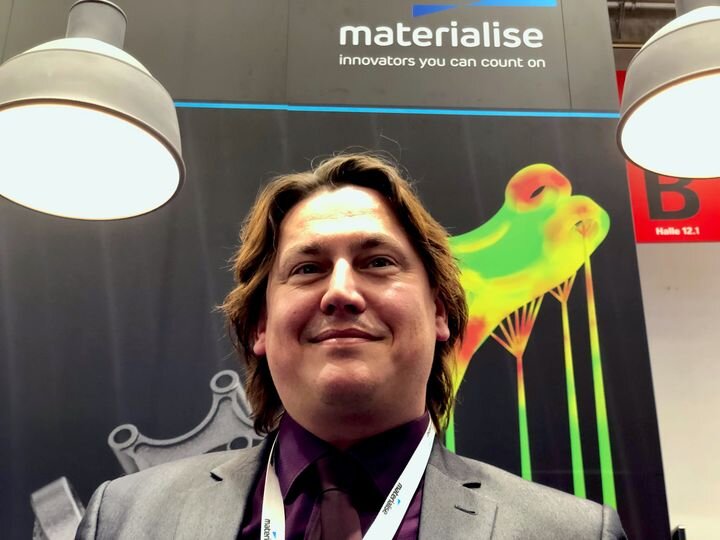We had a chat with Materialise’s Stefaan Motte to find out what’s happening at the long-time 3D printing leader.
Materialise is a Belgian company founded in 1990 to focus on the then-new technology of 3D printing. Since then they’ve developed a comprehensive speciality 3D printing service, and a startlingly powerful array of software tools designed to make life far simpler for those operating 3D printing and additive manufacturing operations.
Motte, Materialise’s Vice President, told us of the dual reality in 3D printing today. On the one hand, you have the traditional issues in 3D printing where participants are under increasing cost pressure, require automation and need to increase scalability. Materialise addresses many of those needs through their very popular Magics software package used to prepare build jobs.
But the other reality is that several leading players in the industry are moving toward serial production using additive manufacturing technologies. While mass manufacturing has existed for many decades and evolved into the highly sophisticated processes of today, this has not yet been widely done with AM tech.
That’s where Materialise has been focusing: enabling manufacturers to use 3D printing technology for both standardized part production as well as customized parts.
Companies need to develop production lines of at least equal sophistication to standard mass manufacturing equivalents of today, and this is a different matter with 3D printing. For example, the ability to perform low-volume manufacturing is not something you’d normally see on traditional setups, so that is a process that must be developed for manufacturers.
In addition, many manufacturing lines today must operate in regulated environments, where additional steps must be taken to assure compliance with the regulations.
Motte says that machine time is the most costly aspect, and thus Materialise has a focus on eliminating mistakes. This is particularly evident on high-priced metal 3D printing operations, where both machine & materials are quite costly and thus job re-runs should be avoided.
Materialise attempts to reduce mistakes through the use of simulation, where various factors can be adjusted without fear of failure in order to hone in on the optimal solution for a given print job. Motte says that “only with that data can you make meaningful decisions.”
This type of analysis requires a deep understanding of machine operation, according to Motte, who says there is a need for a “proper understanding of data and reality”. He says that many of the data feeds obtained during 3D prints are essentially “noise” and don’t necessarily have an effect on print outcome. It seems that Materialise will use AI technology to sift through this data to find optimal build configurations.
Motte is quite positive on the future, saying that we’re getting to a sizeable and mature industry, yet there is much room to differentiate among customers. Importantly, he says that internally, Materialise uses all of its own software for its 3D print services business.
Motte says that in the future “real” production will be crucial and that will require process optimization. This will mean increasingly working with data coming off machines.
Big data is a key part of Materialise’s future, particularly in the cloud. However, Motte explains that some of their clients are traditional and don’t want a move to cloud solutions quite yet.
As we’ve seen a move towards true manufacturing of end-use parts across the 3D printing industry, those doing so will require increasingly sophisticated management software to be successful. And some of that software will come from Materialise.
Via Materialise


